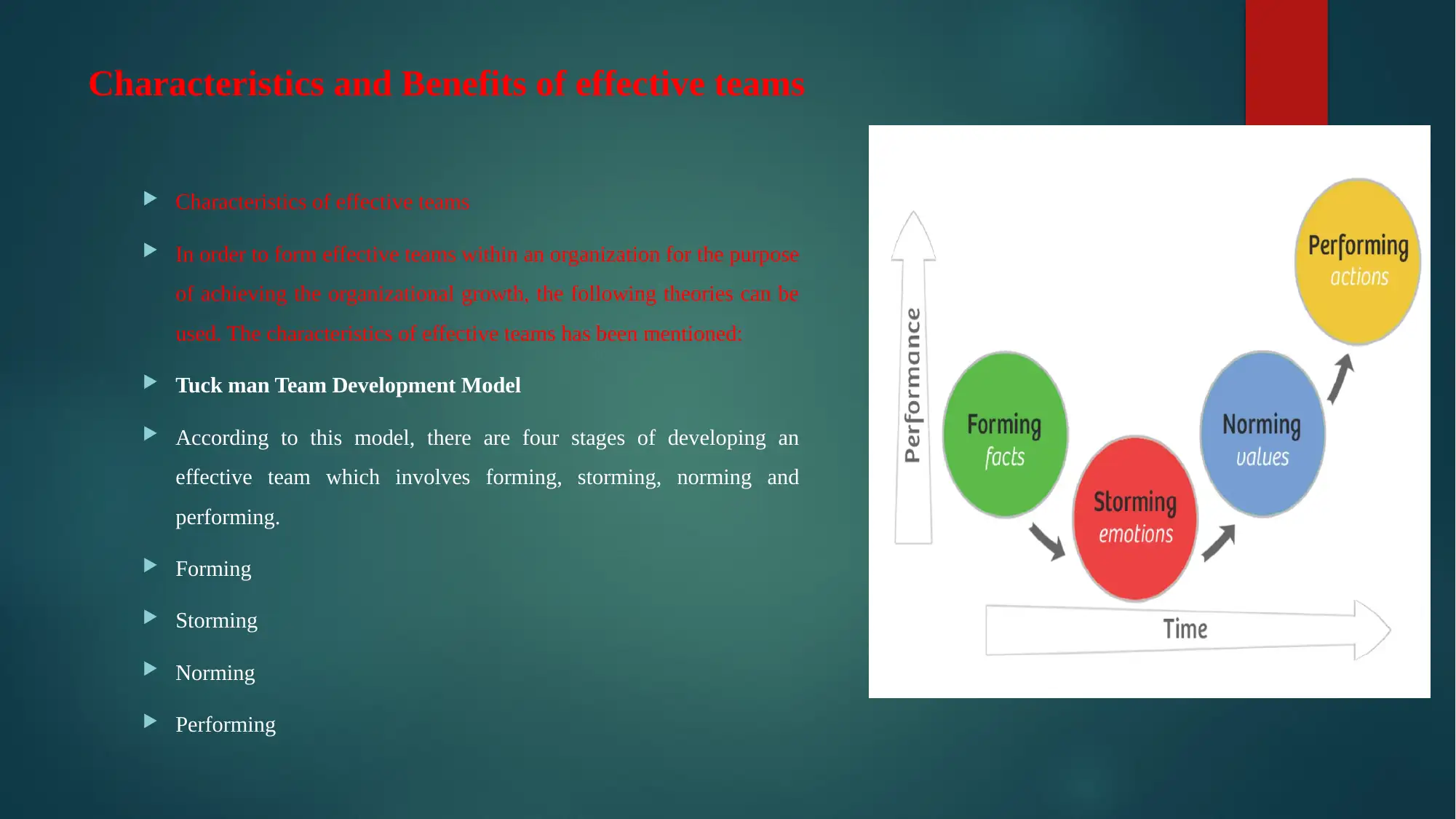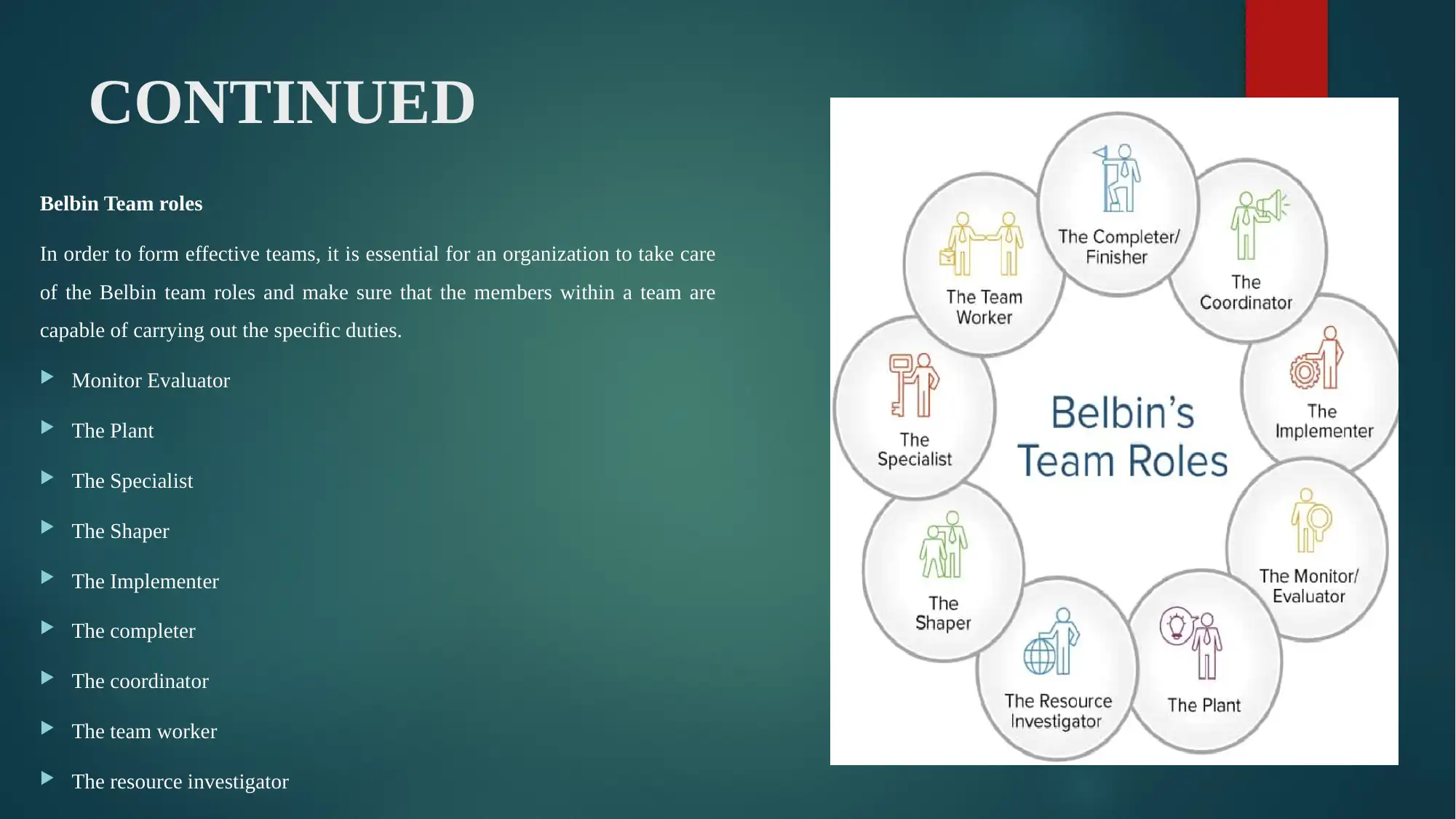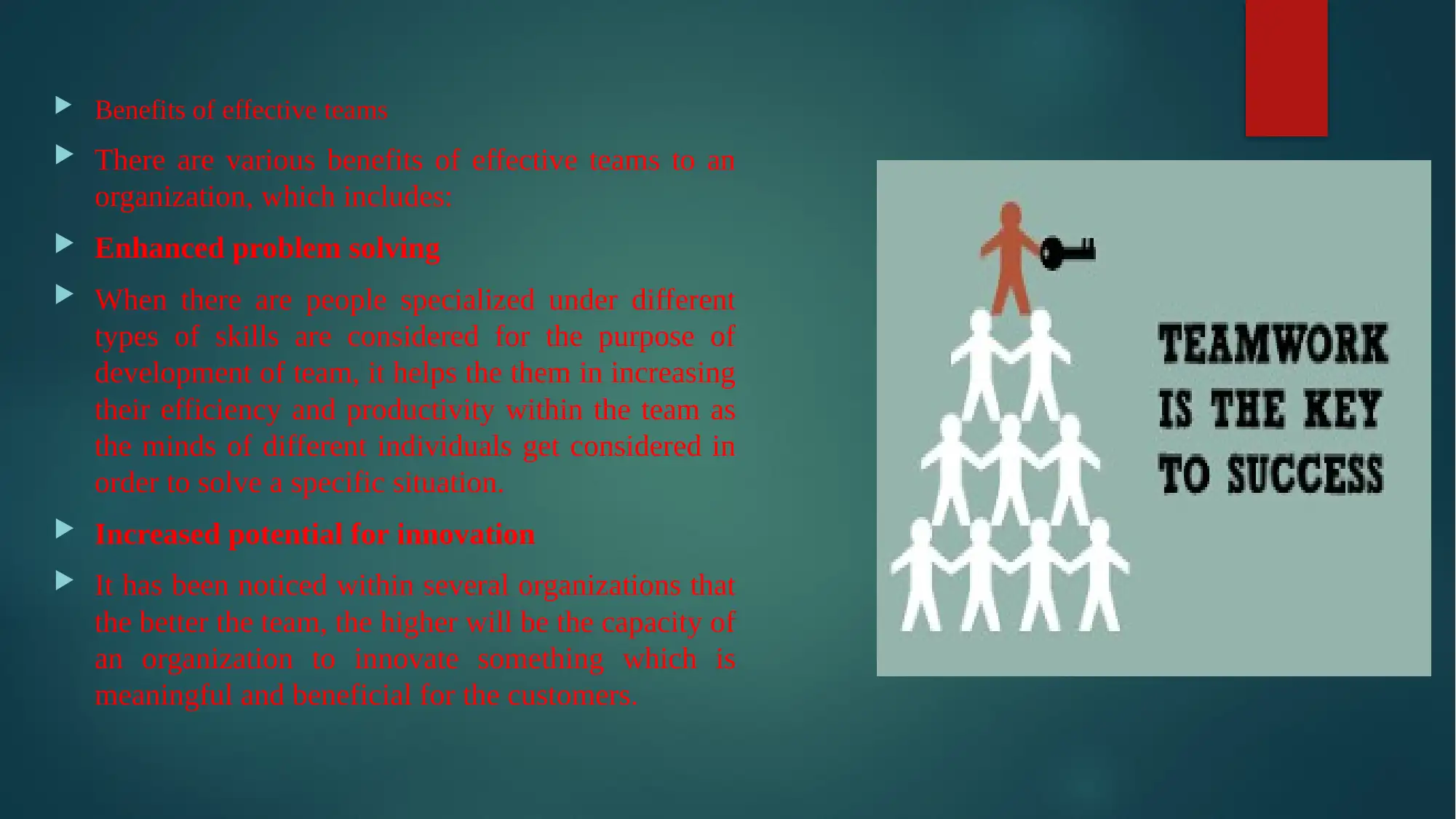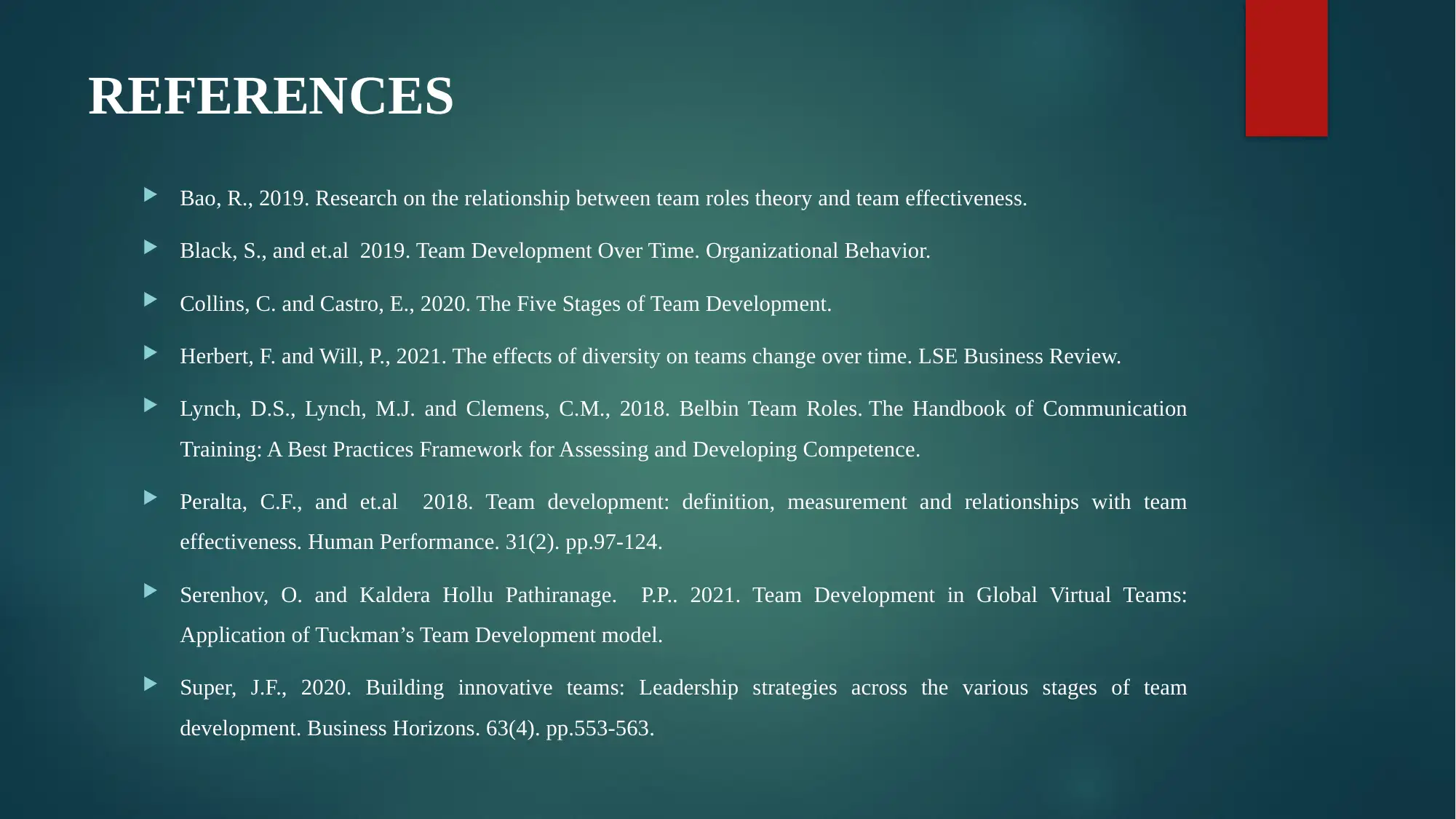Effective Team Working and Communication: Characteristics and Benefits
VerifiedAdded on 2023/06/09
|6
|483
|309
Report
AI Summary
This report explores the characteristics and benefits of effective team working and communication within organizations. It discusses the Tuckman Team Development Model, outlining the stages of forming, storming, norming, and performing, which are crucial for team development. Furthermore, the report examines Belbin Team Roles, emphasizing the importance of diverse roles such as Monitor Evaluator, Plant, Specialist, Shaper, Implementer, Completer, Coordinator, Team worker, and Resource Investigator for team effectiveness. The benefits of effective teams, including enhanced problem-solving capabilities and increased potential for innovation, are also highlighted, referencing various academic sources to support the analysis. Desklib provides access to this and other solved assignments for students.
1 out of 6












![[object Object]](/_next/static/media/star-bottom.7253800d.svg)